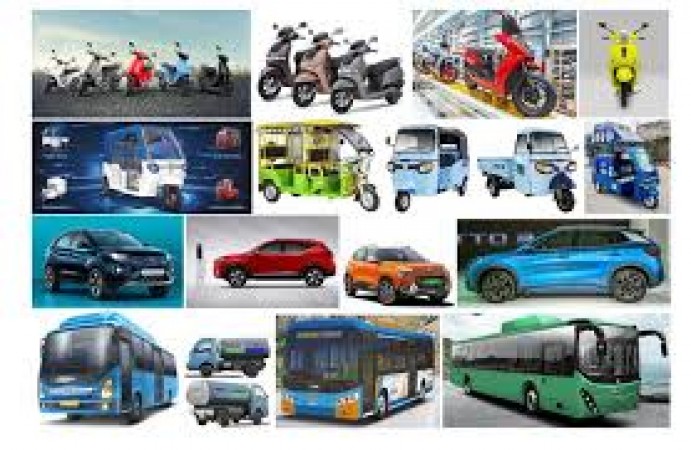
India, a bustling hub of innovation and development, is witnessing a remarkable surge in the adoption of electric vehicles (EVs). With each passing month, the number of electric cars hitting the streets is steadily rising, signaling a monumental shift in the automotive industry.
The recent data reveals an unprecedented spike in the sales of electric cars across the nation. Last month alone, the number of electric vehicles sold soared to remarkable heights, surpassing all previous records. This surge reflects the growing acceptance and enthusiasm for EVs among Indian consumers.
Several factors contribute to the burgeoning popularity of electric vehicles in India:
India's government has been proactive in promoting electric mobility through various initiatives and incentives. Substantial subsidies, tax benefits, and favorable policies incentivize consumers to switch to electric vehicles, making them an attractive alternative to traditional gasoline-powered cars.
The heightened awareness of environmental issues, coupled with growing concerns about air pollution and climate change, has propelled many Indians to embrace eco-friendly transportation solutions. Electric vehicles, with their zero-emission technology, offer a sustainable and greener mode of commuting, aligning with the nation's commitment to reducing carbon footprint.
Advancements in battery technology and infrastructure development have significantly enhanced the performance and feasibility of electric vehicles. With improved range, charging infrastructure, and affordability, EVs have become more practical and appealing to a broader segment of the population.
The electric vehicle market in India is witnessing robust competition, with several prominent players vying for dominance. Companies like Tata Motors, Mahindra Electric, and Hyundai are at the forefront, offering a diverse range of electric cars catering to varying preferences and budgets.
While the surge in electric vehicle adoption presents promising opportunities, certain challenges must be addressed to sustain this momentum:
The expansion of charging infrastructure remains a critical hurdle in the widespread adoption of electric vehicles. Efforts to develop a robust network of charging stations across cities and highways are essential to alleviate range anxiety and enhance the convenience of EV ownership.
Despite declining costs, electric vehicles still tend to be more expensive upfront compared to their conventional counterparts. Continued efforts to reduce manufacturing costs and offer attractive financing options are necessary to make EVs more accessible to the masses.
Raising awareness and dispelling misconceptions about electric vehicles are paramount to accelerate their adoption. Education campaigns highlighting the benefits of EVs, debunking myths, and addressing common concerns can empower consumers to make informed decisions.
As India embarks on its journey towards a sustainable and electrified future, the rapid adoption of electric vehicles marks a significant milestone. With ongoing advancements, supportive policies, and changing consumer preferences, the EV revolution in India is poised to reshape the automotive landscape and pave the way for a greener tomorrow.
India and Peru Conclude 7th Round of Free Trade Agreement Talks
Defence Ministry Issues Rs 65,000 Cr Tender to HAL for 97 LCA Mark 1A Fighter Jets
First Phase of Lok Sabha Election 2024: These Schools to Shut in State-wise and UTs on April 19